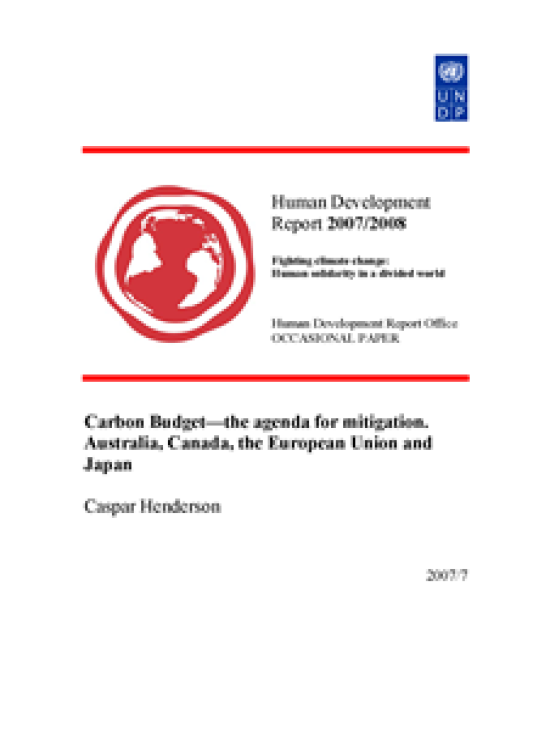Carbon Budget—the agenda for mitigation
Australia, Canada, the European Union and Japan

Download Report by Language
Document
hendersoncaspar.pdf
(494.2 KB)
Citation
Henderson, Caspar. 2008. Carbon Budget—the agenda for mitigation: Australia, Canada, the European Union and Japan. New York.
Carbon Budget—the agenda for mitigation
Australia, Canada, the European Union and Japan
Posted on: January 01, 2008
2007 is the 20th anniversary of the Brundtland Commission’s influential report Our Common Future, which first put sustainable development on the international political agenda. Five years later the United Nations Framework Convention on Climate Change defined an effective response to the challenge of anthropogenic climate change as a central plank of sustainable development. Over the last fifteen years the global scientific community has demonstrated beyond all reasonable doubt regarding that it is necessary to radically curtail growth in greenhouse gas emissions and stabilize atmospheric concentrations at a much lower level than will occur if accepted projections of energy use prove accurate. Most rich industrialized countries, including Canada, Japan and the countries of the European Union accepted an historic, legal and moral responsibility to act first to reduce emissions. To date, they have seldom kept their pledges. In order ensure that atmospheric concentrations of greenhouse gases do not rise above 400 to 450ppmvC02(e) by 2050 with reduction thereafter, these countries, and others, will need to cut their emission by 80% or more by that date. This paper outlines the concept of carbon budgeting and the performance of the Australia, Canada, Japan and the European Union in managing and reducing emissions to date. It examines the strengths and weaknesses of some approaches to delivering greater emissions reductions, and identifies some policies for accelerating change in future.

